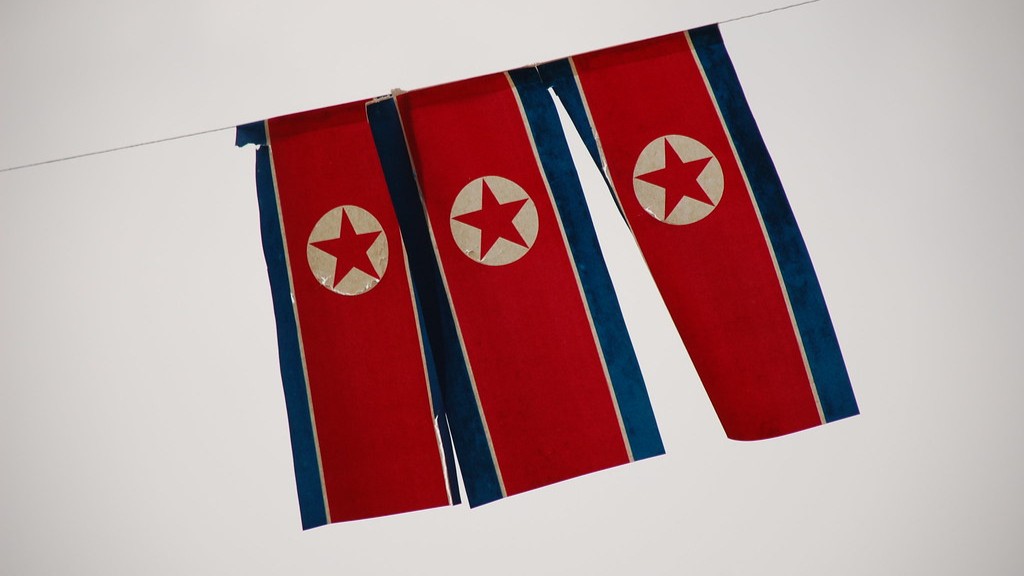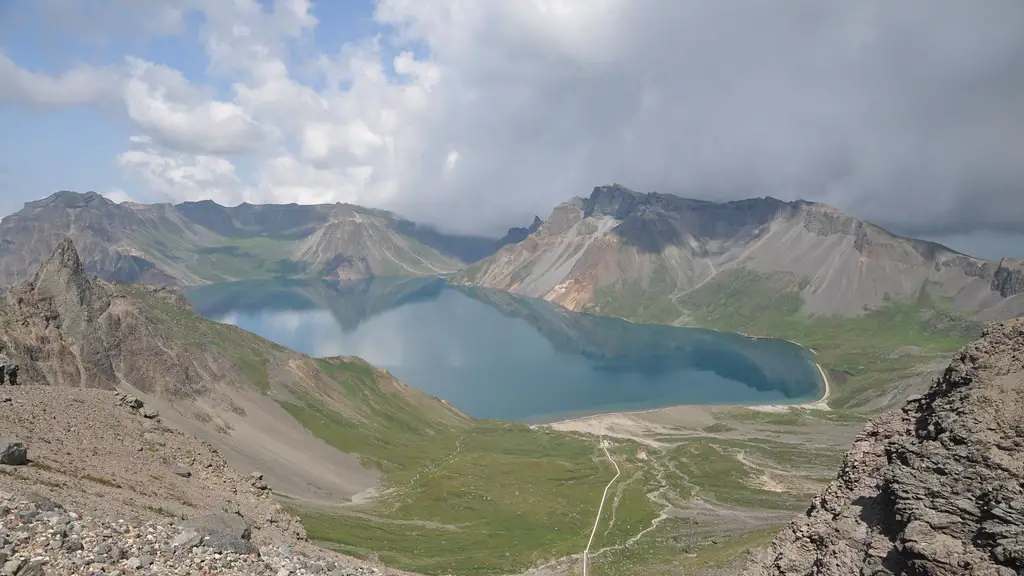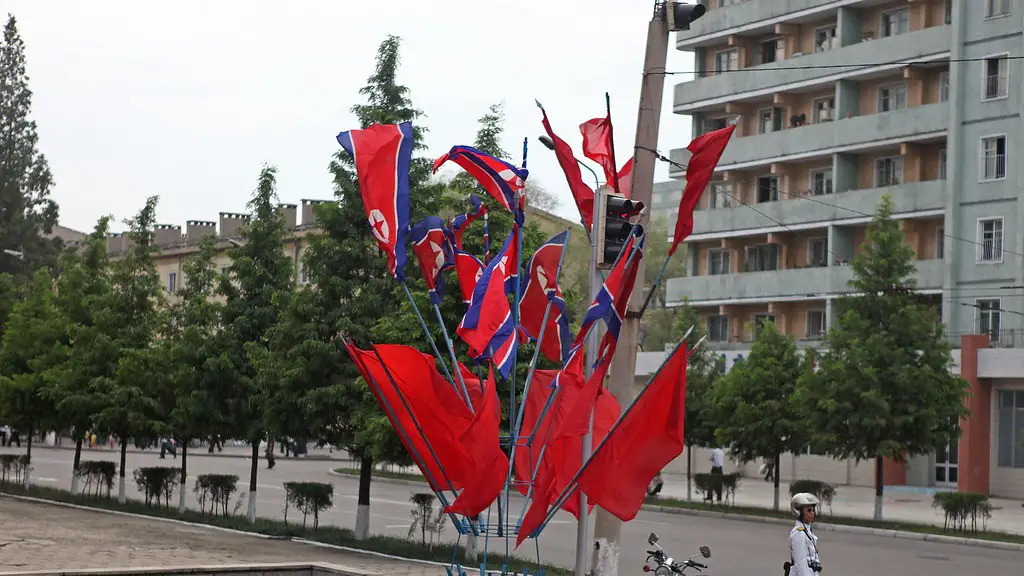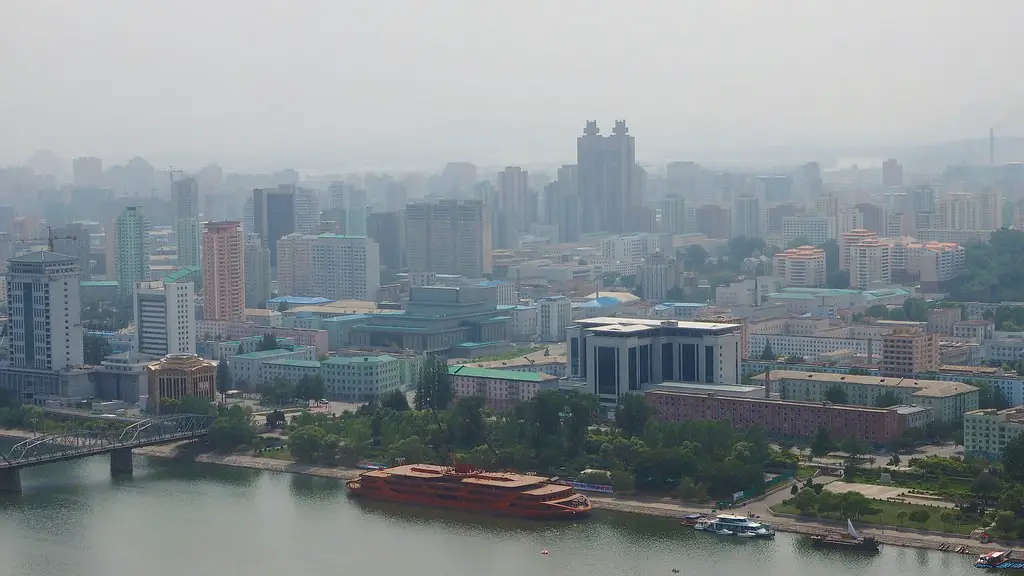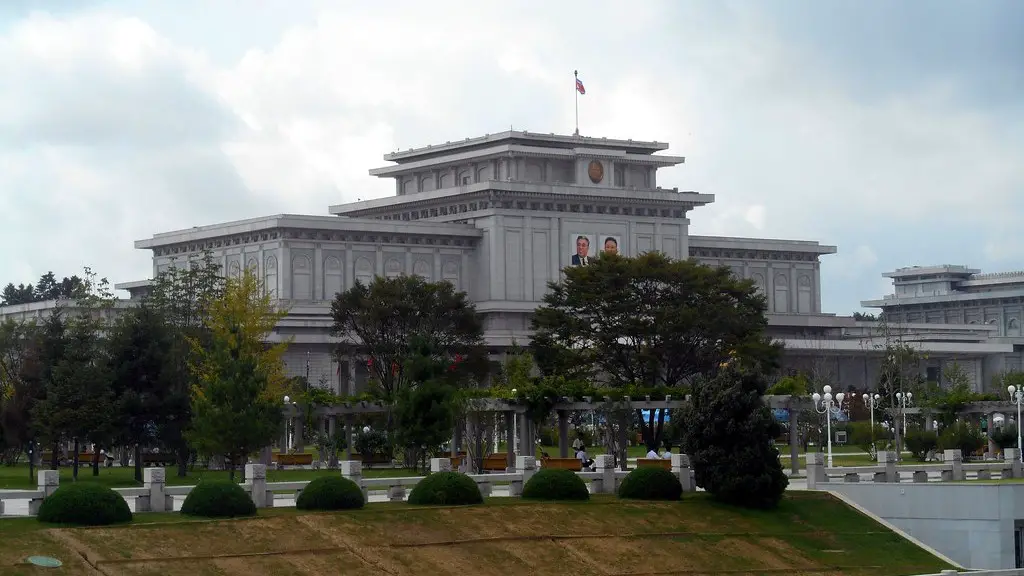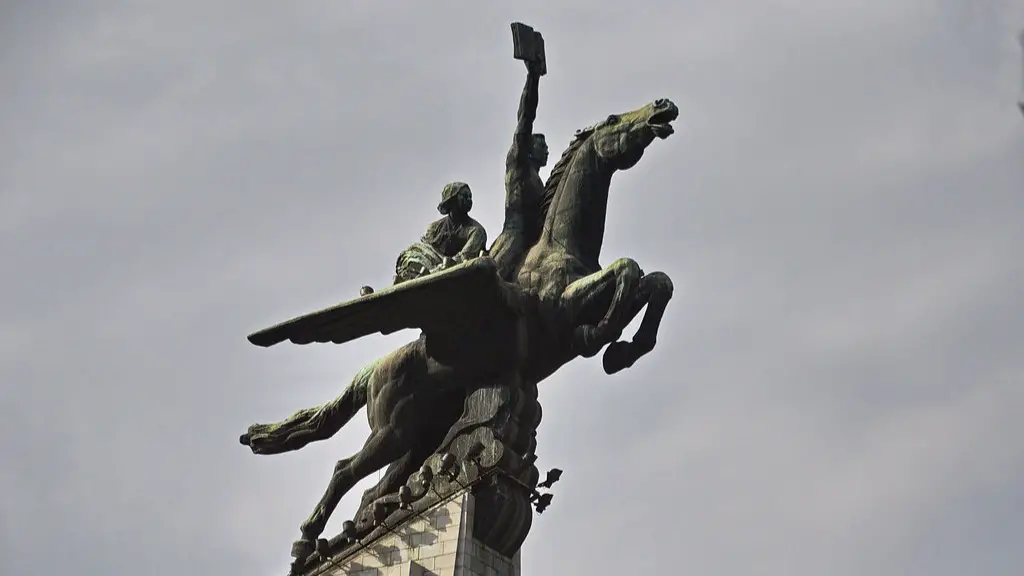North Korea is one of the most mysterious countries in the world. Located in East Asia, the country has been ruled by the Kim family since 1948. It is also known to be an authoritarian state, with its government being both repressive and highly secretive. These characteristics are why the country has attracted so much attention in recent decades.
Despite North Korea’s reclusive and mysterious nature, there is actually a reasonable amount of information and insight available. Here, we’ll look at what we know about North Korea, including the current situation in the country, the government and its economy.
The current situation in North Korea is one of extreme poverty and malnourishment for many citizens. According to the World Food Programme, more than 10 million people are considered to be food insecure and are at risk of severe malnutrition. Additionally, economic sanctions have been imposed on the country by the United Nations, as a result of their nuclear tests and missile launches. This has exacerbated the crisis in North Korea, further limiting the country’s access to much needed aid, finance and resources.
The government of North Korea is a single-party dictatorship, led by the Kim family. The country is controlled by the Workers’ Party of Korea, and its leader is always a member of the Kim family. This family-run government has absolute control over all aspects of the country, including politics, the media, the military and the economy. The current leader of North Korea is Kim-Jong Un, the grandson of the country’s founder, Kim Il Sung. The country is believed to be heavily monitored by its leaders, with severe punishments meted out for those who disobey.
The economy of North Korea is heavily reliant on its exports, mainly to China, Russia and other countries, such as India. The exports are mainly raw materials, such as coal, iron ore and timber. The country also receives foreign aid from China, Russia and other countries. However, it is estimated that most of the money that the country receives is not used to benefit the citizens, but instead goes to the Kim family and the military.
North Korea is also known to have a very vibrant black market, which is considered to be the only source of income for many citizens. This black market includes illegal weaponry, drugs and even foreign currency. It is estimated that up to 40 percent of the country’s population is involved in the black market, with the proceeds being used to support the Kim family.
Overall, there is a much more complex picture of North Korea than what is often portrayed in the media. Despite its reclusive nature, there is actually a lot that we know about the country, the government and its economy.
COVID-19 Situation
The recent outbreak of COVID-19 has also had a severe impact on North Korea, potentially exacerbating an already dire humanitarian situation. The impact of the pandemic on North Korea is especially significant due to the country’s already fragile healthcare system and limited access to medical supplies. With the few medical resources North Korea does have, the government has put a greater emphasis on supporting the military, leaving the general population with limited access to healthcare.
At the same time, the government has attempted to mitigate the impact of the pandemic by increasing its military presence on the borders and sealing off the country. This is largely due to a lack of trust of foreign exports and fears that the virus might spread rapidly through the population. This has caused further restrictions on humanitarian access to the country, further worsening the health and economic situation in the country.
Given the situation in the country, most experts agree that it is very likely that the number of coronavirus cases in North Korea is much higher than what is officially reported. This is because the government does not have the resources or the infrastructure to track and report cases accurately. As a result, the real extent of the outbreak in North Korea is unknown.
The impact of the pandemic on North Korea highlights the urgent need for international assistance to address the ongoing humanitarian crisis. However, this assistance is complicated by the lack of trust of foreign aid, as well as the sanctions placed on the country by the United Nations.
Geography
North Korea is bordered by China and Russia to the north, and by South Korea to the south. The Korean Peninsula itself is situated between the Sea of Japan to the east and the Yellow Sea to the west. North Korea is considered to be one of the most mountainous countries in the world, with its highest peak, Mount Paektu, situated on the border with China.
The majority of the country’s population lives in the northern and western regions, particularly along the Taedong River. The capital city, Pyongyang, is located in the north-west of the country. Pyongyang is the largest city in North Korea, with a population of over three million people.
North Korea has a varied climate, ranging from tropical in the south to sub-arctic in the northern parts of the country. The weather is also highly unpredictable, with monsoons striking in the summer months and severe cold temperatures in the winter.
Overall, North Korea’s geography is highly varied and offers both spectacular natural beauty, as well as harsh ambient conditions. Unfortunately, due to the country’s reclusive nature, access to North Korea by foreigners is very limited.
Culture
The culture of North Korea is heavily influenced by Confucianism, which is a set of moral and social beliefs based on the teachings of Confucius. Confucianism is a major factor in North Korean society, influencing everything from music and literature, to the political system. Additionally, North Korea has its own unique identity, with its own customs and traditions.
Music is an important part of North Korean culture, with Kim Il Sung being particularly fond of traditional Korean music. However, traditional Korean music does not have a strong presence in North Korea due to the government’s efforts to promote the socialist style of music. Similarly, North Korean literature is heavily censored, and the government promotes only works that are approved by the state.
Sports are also a popular pastime in North Korea, with football and basketball being two of the most popular sports. North Koreans are also known to be highly competitive in their sports and have seen some success on the international stage, particularly in the Olympic Games. The country is also known for its iconic military parades.
Overall, despite the restrictions imposed by the government, North Korea is still home to a very vibrant culture, with its own unique customs and traditions.
Relationships with Other Countries
North Korea has historically had a strained relationship with many countries, particularly the United States. This conflict is rooted in the Cold War, and tensions have remained high since then. North Korea is one of the most heavily sanctioned countries in the world, with many countries imposing economic sanctions due to its illegal nuclear tests and missile launches.
In recent years, there have been some attempts to ease tensions between North Korea and the United States, with the two countries engaging in some diplomatic talks. However, these talks have not been successful in solving the root of the conflict. There has also been some attempts to normalize North Korea’s relationship with other countries, such as South Korea, Japan and China.
However, North Korea’s relationship with the majority of other countries remains strained and the country is still largely isolated from the rest of the world. This is largely due to the country’s provocative actions, as well as its secretive and repressive nature.
Conclusion of North Korea
North Korea remains one of the most mysterious and secretive countries in the world. The country has been ruled by the Kim family since 1948 and is an authoritarian state with its government being both repressive and highly secretive. Despite this, there is much that we know about North Korea, including the current situation in the country, the government, the economy and the culture.
The current situation in North Korea is one of extreme poverty and malnourishment, while the government is a single-party dictatorship, led by the Kim family. The economy is heavily reliant on exports and foreign aid and the country is known to have a very vibrant black market. North Korea also has a strained relationship with many countries, particularly the United States.
Overall, North Korea is a country that fascinates many people, yet is often misunderstood. While the country still remains a mystery to many, the picture of North Korea is slowly becoming clearer.
